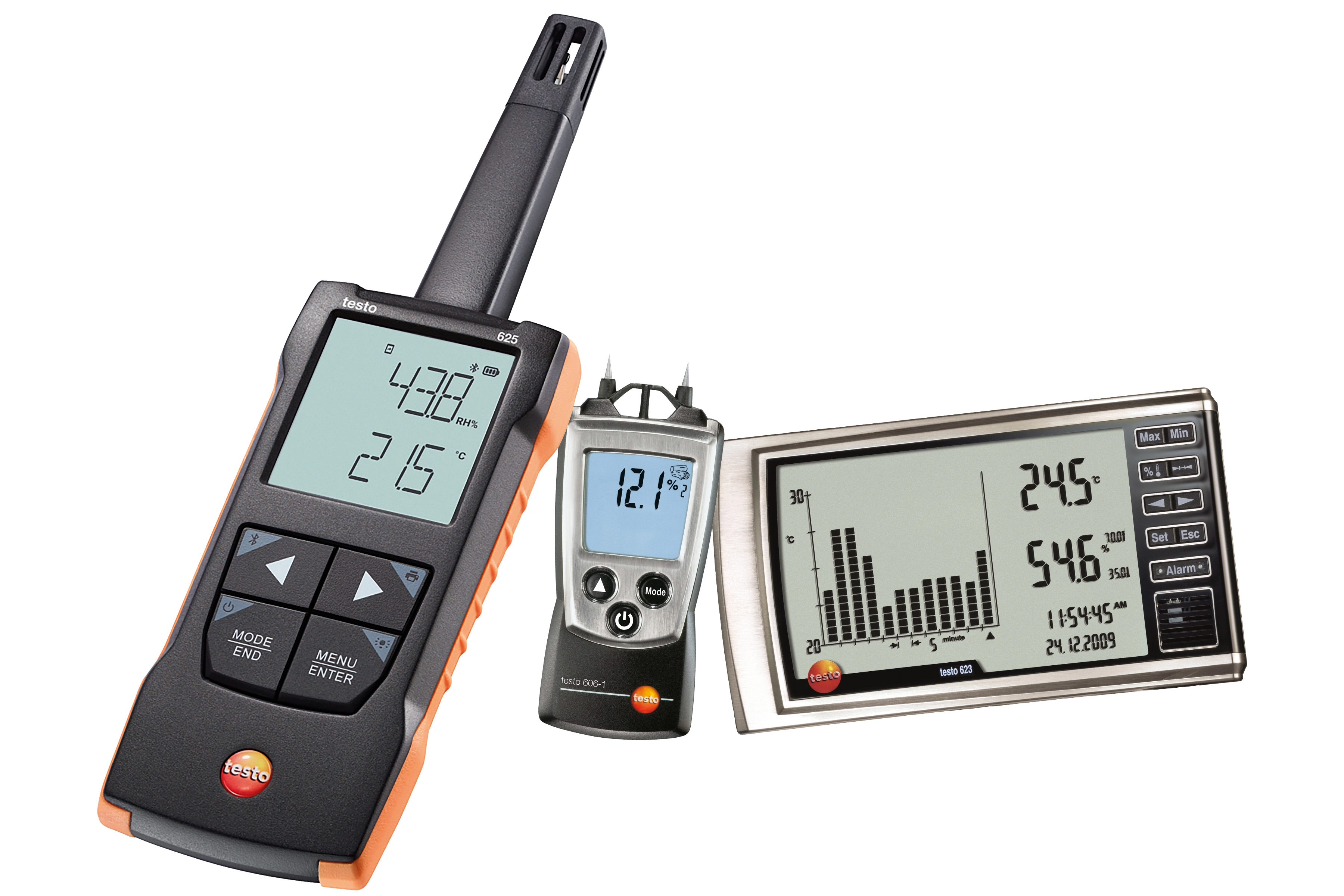Comprehending the Various Kinds Of Moisture Meters and Their Applications
The Ultimate Guide to Moisture Meters: A Comprehensive Summary and How They Can Save You Money
In the world of building maintenance, building, and numerous sectors, the significance of properly determining dampness degrees can not be overstated. Dampness meters offer as essential tools in finding and keeping an eye on moisture content in materials, helping in stopping expensive damages and making certain the high quality of products. Understanding the nuances of various types of wetness meters, their applications, and the prospective cost-saving benefits they provide can be a game-changer for services and professionals alike. Uncovering how these devices can not just enhance processes but likewise add to financial cost savings is a journey worth starting.
Sorts Of Moisture Meters
Different kinds of dampness meters are available for various applications in various markets. One usual type is the pin-type dampness meter, which measures the electric resistance between two pins placed right into a material. This type is suitable for timber, drywall, and other structure products. Pinless wetness meters, on the various other hand, usage electromagnetic sensor plates to check a larger location without triggering damages to the material's surface area. These meters are optimal for swiftly assessing wetness levels in large locations such as walls and floors.
Infrared dampness meters measure the thermal residential properties of a product to determine its wetness web content non-invasively, making them valuable for applications where pin or pinless meters may not be appropriate. Recognizing the different types of moisture meters offered can aid sectors choose the most suitable tool for their specific wetness dimension requirements.

Advantages of Utilizing Moisture Meters

Moreover, making use of dampness meters can cause boosted energy performance. By recognizing areas with high wetness levels, such as leaks or inadequate insulation, modifications can be made to boost energy preservation and reduce energy prices. In agricultural settings, wetness meters play an important duty in maximizing crop yields by making it possible for farmers to keep an eye on dirt moisture levels and make notified irrigation choices. Generally, the advantages of utilizing wetness meters cover across different industries, offering cost-effective remedies and promoting far better high quality control techniques.
How to Pick the Right Moisture Meter
Picking the suitable dampness meter entails thinking about essential variables such as product compatibility, dimension variety, and calibration accuracy. When selecting a moisture meter, it's important to ensure that the meter appropriates for the details material you will be screening. Various materials have differing electric homes that can affect moisture readings, so selecting a meter developed for your product is vital for exact results. In addition, take into consideration the measurement variety of the dampness meter. Make certain that the meter can identify wetness levels within the variety needed for your applications. Calibration accuracy is an additional vital element to keep in mind (Moisture Meter). Decide for a dampness meter with trustworthy calibration to guarantee accurate and consistent readings. Some meters may call for routine calibration modifications, so recognizing the calibration process is very important. By very carefully evaluating these aspects, you can pick a dampness meter that fulfills your requirements and supplies accurate moisture dimensions for your tasks.
Appropriate Strategies for Moisture Meter Use
To make sure accurate dampness readings and make best use of the efficiency of a wetness meter, using appropriate techniques is important. When using a pin-type moisture meter, insert the pins or probes right into the product being evaluated up until they make complete contact. By following these correct strategies, customers can depend on their dampness meter to give reliable dampness levels, aiding in preventing costly damage or ensuring top quality in different applications.

Cost Savings With Moisture Meter Applications
Exactly how can the calculated application of moisture meters lead to substantial cost savings across various industries? In the farming sector, wetness meters aid in figuring out the optimal time for harvesting crops, preventing excess or over-drying wetness that can impact the final item's quality.

Furthermore, in the food handling sector, dampness meters are important for keeping track of item high quality and guaranteeing compliance with security policies. By accurately determining wetness web content in food, suppliers can protect against important site perishing, preserve freshness, and reduce waste, resulting in substantial price savings. Generally, the strategic application of wetness meters is a valuable investment that can lead to substantial price decreases and boosted this website efficiency throughout numerous markets.
Conclusion
In verdict, moisture meters are valuable tools for spotting and measuring moisture levels in different products. By utilizing the right moisture meter and following appropriate methods, customers can successfully stop expensive problems triggered by excess wetness. Buying a quality moisture meter can lead to significant expense financial savings over time by recognizing prospective problems at an early stage and making it possible for punctual remediation. Ultimately, moisture meters are vital tools for keeping the honesty and durability of frameworks and materials.
Wetness meters offer as indispensable devices in identifying and keeping track of moisture web content in products, aiding in avoiding expensive problems and making certain the quality of products. Infrared wetness meters determine the thermal residential or commercial properties of a product to identify its dampness web content non-invasively, making them useful for applications where pin or pinless meters may not be suitable.Wetness meters use very useful benefits in properly keeping track of and evaluating wetness degrees in diverse materials and atmospheres. In agricultural settings, moisture meters play an essential role in optimizing crop yields by enabling farmers to monitor soil more moisture degrees and make educated watering decisions.In conclusion, moisture meters are useful devices for discovering and measuring wetness levels in numerous materials.